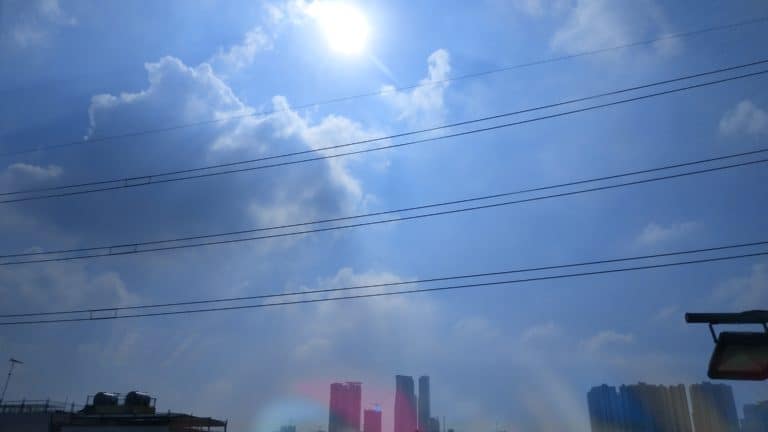
Lawmakers participate in a vote to impeach President Yoon Suk Yeol at the National Assembly in Seoul, Saturday. Korea Times photo by Choi Won-suk Weak won to be biggest obstacle for financial and foreign exchange markets By Jun Ji-hye Political uncertainties that had plagued Korea have eased somewhat following the passage of an impeachment motion against President Yoon Suk Yeol at the National Assembly over his failed imposition of martial law. However, concerns about economic volatility remain.
There is a growing consensus that the country's growth forecast for next year, already downgraded due to uncertainties surrounding the influence of former U.S. President Donald Trump’s policies following his return to the White House, could decline further to the 1 percent range due to the impact of the impeachment crisis.

The government pledged stable state management after the impeachment motion against Yoon was passed on Saturday, emphasizing that the economic impact during previous impeachment crises — when the Assembly passed motions against former presidents Roh Moo-hyun in 2004 and Park Geun-hye in 2016 — was limited. In the two previous impeachment crises, the negative impact of political turmoil on the economy was largely mitigated because economic policies continued to be pursued independently. Moreover, external factors played a significant role in supporting economic growth — China’s rapid expansion in 2004 and a thriving global semiconductor market in 2016 both provided strong tailwinds that helped drive exports and sustain Korea's economic growth momentum.
This time, however, the situation is different. Current cabinet members, including Prime Minister Han Duck-soo and Finance Minister Choi Sang-mok, are facing criticism for failing to prevent the president’s martial law plan despite having prior knowledge of it. This has tarnished their leadership and weakened the momentum for advancing crucial economic policies.
Adding to the challenges are deteriorating trade conditions, such as the anticipated high-tariff policies under the incoming Donald Trump administration and China’s slowing growth. This is leading to predictions that shockwaves from Yoon’s impeachment, combined with the prolonged slump in domestic demand and other internal and external factors, could be greater than expected. U.
S. President-elect Donald Trump gestures to attendees at the Army-Navy football game in Maryland, Saturday. Reuters-Yonhap The primary obstacle currently facing Korea’s financial and foreign exchange markets is the weak value of the won against the U.
S. dollar, which stands in the 1,400 range against the greenback. Following Trump’s election victory, the strong dollar trend is expected to continue, with most forecasts predicting that the exchange rate will remain within this range through the first half of next year.
A depreciation of the won drives up import prices, potentially triggering a vicious cycle of high inflation and elevated interest rates. Given Korea’s low food self-sufficiency rate and reliance on imported raw materials like flour and cheese, rising prices of these goods could place additional strain on household expenses. This makes it increasingly difficult for the Bank of Korea (BOK), which prioritizes price stability, to implement a further rate cut to stimulate the economy.
The ongoing situation increases the likelihood that the country’s already downgraded growth forecast, impacted by Trump’s return to power, could decline further. Even before the martial law fiasco, Korea’s growth forecasts by major research institutions had already been revised down to around 2 percent, signaling an increasing likelihood of low growth in the 1 percent range next year. The figures, announced between the U.
S. presidential election on Nov. 5 and Yoon’s martial law announcement on Dec.
3, include 2 percent from the Korea Development Institute, 2 percent from the Asian Development Bank and 1.9 percent from the BOK. “Given the current situation, next year’s growth rate is expected to be further downgraded by at least 0.
1 to 0.2 percentage point,” Kim Gwang-suk, a senior researcher at the Institute for Korean Economy and Industry, said. Global investment banks are also perceiving the domestic political situation as a negative factor that could constrain next year’s growth rate.
“We maintain our below-consensus growth forecast of 1.8 percent for 2025, yet with risks increasingly skewed to the downside,” Goldman Sachs said in a report issued on Dec. 9 and authored by Kwon Goo-hoon, senior Asia economist and managing director.
Read More Korea to face months of leadership vacuum after impeachment of President Yoon Suk Yeol Korea exposed to Trump risk amid leadership crisis Economic policies lose momentum amid leadership vacuum Against this backdrop, the BOK stressed the need for more proactive measures in response to the economic situation. “If key financial and economic policies, including supplementary budgets, are smoothly carried out through cooperation between the ruling and opposition parties as well as the government, and if trust is built in the economic system’s ability to operate independently and normally, the impact on the economy will likely be limited,” the central bank said in a report on Sunday..











